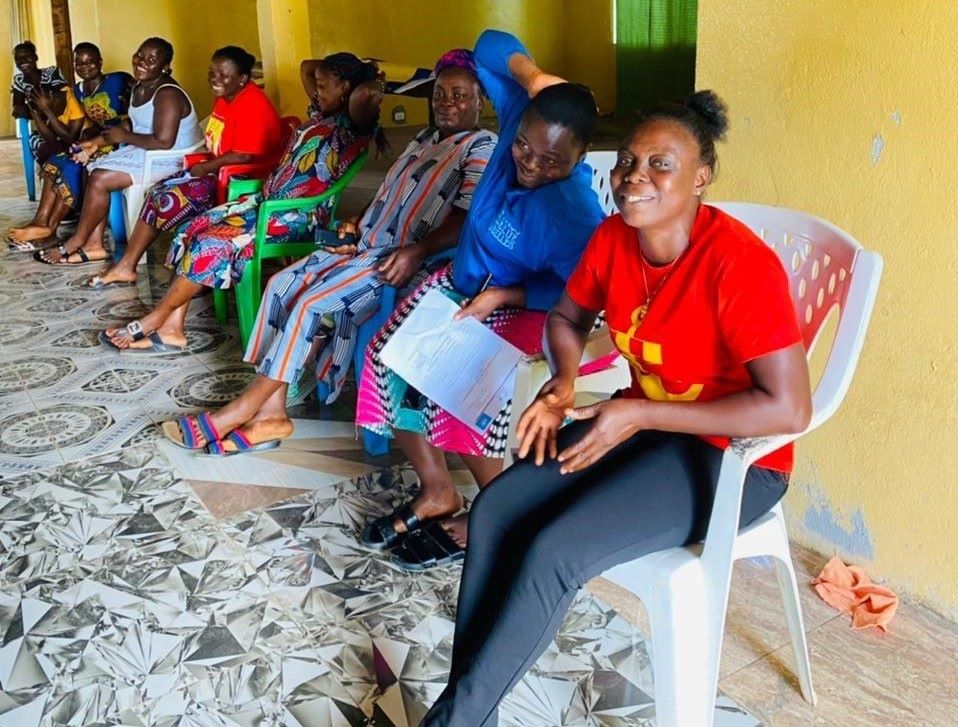Breaking Down Obstacles To Reconciliation
The Center for Security Studies and Development (CENSSAD) has completed a number of community engagements beginning in Liberia’s Sinoe County to be followed by Grand Gedeh and Nimba counties, as part of the project titled: “Amplifying Women Voices: Understanding and Breaking Down Obstacles to Women’s Participation in Liberia Peace building and Reconciliation Processes.”
During these engagements, the Program Team of CENSSAD met with a cross section of women groups and local officials in the three counties and provided an overview of the project activities. During the consultations with the women groups, 4 local female enumerators were identified in each county to undertake a baseline study.
The project team also conducted training sessions for the selected local enumerators in the three counties. The training covered topics relating to introduction and overview of the study, review of survey protocols. Review of questionnaires and review of research standards and confidentially.
Meanwhile, in the coming week, CENSSAD will deployed the enumerators in communities across the six target counties, including, Rivercess, Cape Mount, Lofa, Grand Gedeh, Nimba, Grand Gedeh and Sinoe counties, to acquire systematic, in-depth knowledge about the drivers of Liberian women’s systematic exclusion from the reconciliation process. More specifically, CENSSAD will conduct a total of 1200 one-on-one semi-structured interviews with women residing in the target counties where the project is implemented in order to examine the barriers that underlie their neglect in the reconciliation process. This baseline serves as the fundament for the other major interventions, capacity building training workshops to sharpen the skills of the women to enhance their participation in the reconciliation processes, women led town hall meetings foster to intra-community dialogue among female population and local stakeholders to develop strategies and formulate recommendations about how to address the barriers identified during the interviews
Since the end of its second civil war in 2003, Liberia has made great strides in building peace and establishing democracy. Yet, the country keeps grappling with its reconciliation process that remains flawed with regard to both pace and inclusion until today. The project seeks to establish an inclusive reconciliation process that incorporates the entire population and both identifies and addresses the root causes of the country’s violent past. Any attempt to strengthen reconciliation in Liberia must h empower women to finally take a more active role in this process and raise their voice with regard to local issues that torpedo efforts to reconcile Liberia’s population.
The project is supported by the German Federal Office’s Funds through the Zivik Funding Programme by ifa (Institut für Auslandsbeziehungen). The Zivik Funding Programme supports civil society actors worldwide in preventing crises, transforming conflicts, and creating as well as stabilizing peaceful social and political systems.
The project contributes to the establishment of an inclusive reconciliation process that aligns with both the 2003 Comprehensive Peace Agreement (CPA) and the 2017 Liberia Peacebuilding Plan (LPP). Various segments of the population have remained by and large excluded from the reconciliation process, with women being the largest one. The low level of activity of women in Liberia’s reconciliation process is surprising, given their reputation of being strongly committed to prevent intra-state conflict from ever reigniting again. It is hence of utmost importance to understand why Liberian women fail to drive forward the reconciliation process and what can be done to render the latter more inclusive. Understanding and addressing the barriers that prevent them from actively contributing to the country’s reconciliation process will allow women to sustain the peace they once achieved themselves.

